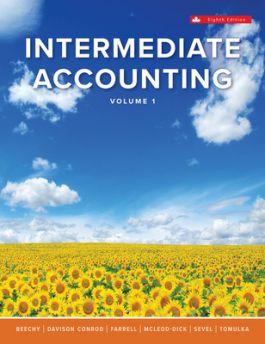Question
16. When a company holds between 20% and 50% of the outstanding ordinary shares of an investee, which of the following statements applies? a. The
16. When a company holds between 20% and 50% of the outstanding ordinary shares of an investee, which of the following statements applies? a. The investor should always use the equity method to account for its investment. b. The investor should use the equity method to account for its investment unless circum-stances indicate that it is unable to exercise "significant influence" over the investee. c. The investor must use the fair value method unless it can clearly demonstrate the ability to exercise "significant influence" over the investee. d. The investor should always use the fair value method to account for its investment.
17. If the investor owns 60% of the investee's outstanding ordinary shares, the investor should generally account for this investment under the a. cost method. b. fair value method. c. consolidation equity method. d. consolidation method.
18. Match the investment accounting approach with the correct valuation approach: Not held-for-collection Held-for-collection a. Amortized cost Amortized cost b. Fair value Fair value c. Fair value Amortized cost d. Amortized cost Fair value
Step by Step Solution
There are 3 Steps involved in it
Step: 1

Get Instant Access to Expert-Tailored Solutions
See step-by-step solutions with expert insights and AI powered tools for academic success
Step: 2

Step: 3

Ace Your Homework with AI
Get the answers you need in no time with our AI-driven, step-by-step assistance
Get Started


